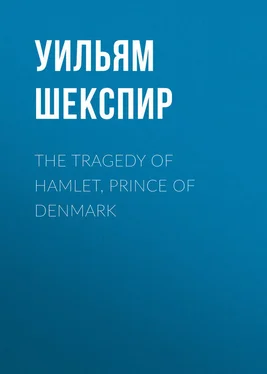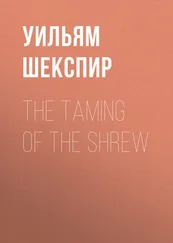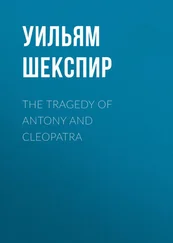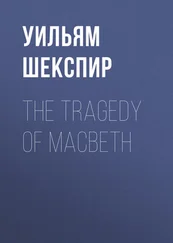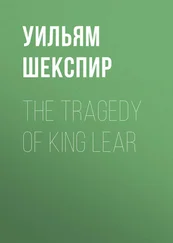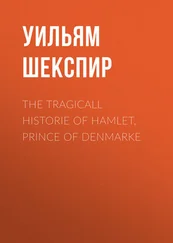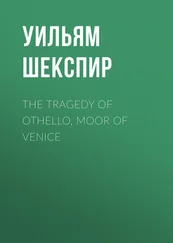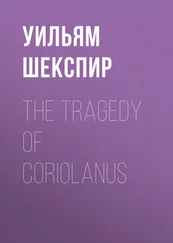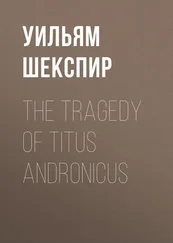Уильям Шекспир - The Tragedy of Hamlet, Prince of Denmark
Здесь есть возможность читать онлайн «Уильям Шекспир - The Tragedy of Hamlet, Prince of Denmark» — ознакомительный отрывок электронной книги совершенно бесплатно, а после прочтения отрывка купить полную версию. В некоторых случаях можно слушать аудио, скачать через торрент в формате fb2 и присутствует краткое содержание. Жанр: Европейская старинная литература, Драматургия, foreign_dramaturgy, на английском языке. Описание произведения, (предисловие) а так же отзывы посетителей доступны на портале библиотеки ЛибКат.
- Название:The Tragedy of Hamlet, Prince of Denmark
- Автор:
- Жанр:
- Год:неизвестен
- ISBN:нет данных
- Рейтинг книги:3 / 5. Голосов: 1
-
Избранное:Добавить в избранное
- Отзывы:
-
Ваша оценка:
- 60
- 1
- 2
- 3
- 4
- 5
The Tragedy of Hamlet, Prince of Denmark: краткое содержание, описание и аннотация
Предлагаем к чтению аннотацию, описание, краткое содержание или предисловие (зависит от того, что написал сам автор книги «The Tragedy of Hamlet, Prince of Denmark»). Если вы не нашли необходимую информацию о книге — напишите в комментариях, мы постараемся отыскать её.
The Tragedy of Hamlet, Prince of Denmark — читать онлайн ознакомительный отрывок
Ниже представлен текст книги, разбитый по страницам. Система сохранения места последней прочитанной страницы, позволяет с удобством читать онлайн бесплатно книгу «The Tragedy of Hamlet, Prince of Denmark», без необходимости каждый раз заново искать на чём Вы остановились. Поставьте закладку, и сможете в любой момент перейти на страницу, на которой закончили чтение.
Интервал:
Закладка:
We do it wrong, being so majestical,
To offer it the show of violence;
For it is as the air, invulnerable,
And our vain blows malicious mockery.
Ber. It was about to speak, when the cock crew.
Hor. And then it started, like a guilty thing
Upon a fearful summons. I have heard
The cock, that is the trumpet to the morn,
Doth with his lofty and shrill-sounding throat
Awake the god of day; and at his warning,
Whether in sea or fire, in earth or air,
Th' extravagant and erring spirit hies
To his confine; and of the truth herein
This present object made probation.
Mar. It faded on the crowing of the cock.
Some say that ever, 'gainst that season comes
Wherein our Saviour's birth is celebrated,
The bird of dawning singeth all night long;
And then, they say, no spirit dare stir abroad,
The nights are wholesome, then no planets strike,
No fairy takes, nor witch hath power to charm,
So hallow'd and so gracious is the time.
Hor. So have I heard and do in part believe it.
But look, the morn, in russet mantle clad,
Walks o'er the dew of yon high eastward hill.
Break we our watch up; and by my advice
Let us impart what we have seen to-night
Unto young Hamlet; for, upon my life,
This spirit, dumb to us, will speak to him.
Do you consent we shall acquaint him with it,
As needful in our loves, fitting our duty?
Let's do't, I pray; and I this morning know
Where we shall find him most conveniently. Exeunt.
Scene II. Elsinore. A room of state in the Castle
Flourish. [Enter Claudius, King of Denmark, Gertrude the Queen, Hamlet, Polonius, Laertes and his sister Ophelia, [Voltemand, Cornelius,] Lords Attendant.
King. Though yet of Hamlet our dear brother's death
The memory be green, and that it us befitted
To bear our hearts in grief, and our whole kingdom
To be contracted in one brow of woe,
Yet so far hath discretion fought with nature
That we with wisest sorrow think on him
Together with remembrance of ourselves.
Therefore our sometime sister, now our queen,
Th' imperial jointress to this warlike state,
Have we, as 'twere with a defeated joy,
With an auspicious, and a dropping eye,
With mirth in funeral, and with dirge in marriage,
In equal scale weighing delight and dole,
Taken to wife; nor have we herein barr'd
Your better wisdoms, which have freely gone
With this affair along. For all, our thanks.
Now follows, that you know, young Fortinbras,
Holding a weak supposal of our worth,
Or thinking by our late dear brother's death
Our state to be disjoint and out of frame,
Colleagued with this dream of his advantage,
He hath not fail'd to pester us with message
Importing the surrender of those lands
Lost by his father, with all bands of law,
To our most valiant brother. So much for him.
Now for ourself and for this time of meeting.
Thus much the business is: we have here writ
To Norway, uncle of young Fortinbras,
Who, impotent and bedrid, scarcely hears
Of this his nephew's purpose, to suppress
His further gait herein, in that the levies,
The lists, and full proportions are all made
Out of his subject; and we here dispatch
You, good Cornelius, and you, Voltemand,
For bearers of this greeting to old Norway,
Giving to you no further personal power
To business with the King, more than the scope
Of these dilated articles allow. [Gives a paper.]
Farewell, and let your haste commend your duty.
Cor., Volt. In that, and all things, will we show our duty.
King. We doubt it nothing. Heartily farewell.
And now, Laertes, what's the news with you?
You told us of some suit. What is't, Laertes?
You cannot speak of reason to the Dane
And lose your voice. What wouldst thou beg, Laertes,
That shall not be my offer, not thy asking?
The head is not more native to the heart,
The hand more instrumental to the mouth,
Than is the throne of Denmark to thy father.
What wouldst thou have, Laertes?
Laer. My dread lord,
Your leave and favour to return to France;
From whence though willingly I came to Denmark
To show my duty in your coronation,
Yet now I must confess, that duty done,
My thoughts and wishes bend again toward France
And bow them to your gracious leave and pardon.
King. Have you your father's leave? What says Polonius?
Pol. He hath, my lord, wrung from me my slow leave
By laboursome petition, and at last
Upon his will I seal'd my hard consent.
I do beseech you give him leave to go.
King. Take thy fair hour, Laertes. Time be thine,
And thy best graces spend it at thy will!
But now, my cousin Hamlet, and my son-
Ham. [aside] A little more than kin, and less than kind!
King. How is it that the clouds still hang on you?
Ham. Not so, my lord. I am too much i' th' sun.
Queen. Good Hamlet, cast thy nighted colour off,
And let thine eye look like a friend on Denmark.
Do not for ever with thy vailed lids
Seek for thy noble father in the dust.
Thou know'st 'tis common. All that lives must die,
Passing through nature to eternity.
Ham. Ay, madam, it is common.
Queen. If it be,
Why seems it so particular with thee?
Ham. Seems, madam, Nay, it is. I know not 'seems.'
'Tis not alone my inky cloak, good mother,
Nor customary suits of solemn black,
Nor windy suspiration of forc'd breath,
No, nor the fruitful river in the eye,
Nor the dejected havior of the visage,
Together with all forms, moods, shapes of grief,
'That can denote me truly. These indeed seem,
For they are actions that a man might play;
But I have that within which passeth show-
These but the trappings and the suits of woe.
King. 'Tis sweet and commendable in your nature, Hamlet,
To give these mourning duties to your father;
But you must know, your father lost a father;
That father lost, lost his, and the survivor bound
In filial obligation for some term
To do obsequious sorrow. But to persever
In obstinate condolement is a course
Of impious stubbornness. 'Tis unmanly grief;
It shows a will most incorrect to heaven,
A heart unfortified, a mind impatient,
An understanding simple and unschool'd;
For what we know must be, and is as common
As any the most vulgar thing to sense,
Why should we in our peevish opposition
Take it to heart? Fie! 'tis a fault to heaven,
A fault against the dead, a fault to nature,
To reason most absurd, whose common theme
Is death of fathers, and who still hath cried,
From the first corse till he that died to-day,
'This must be so.' We pray you throw to earth
This unprevailing woe, and think of us
As of a father; for let the world take note
You are the most immediate to our throne,
And with no less nobility of love
Than that which dearest father bears his son
Do I impart toward you. For your intent
In going back to school in Wittenberg,
It is most retrograde to our desire;
And we beseech you, bend you to remain
Here in the cheer and comfort of our eye,
Our chiefest courtier, cousin, and our son.
Queen. Let not thy mother lose her prayers, Hamlet.
I pray thee stay with us, go not to Wittenberg.
Ham. I shall in all my best obey you, madam.
King. Why, 'tis a loving and a fair reply.
Be as ourself in Denmark. Madam, come.
This gentle and unforc'd accord of Hamlet
Sits smiling to my heart; in grace whereof,
No jocund health that Denmark drinks to-day
But the great cannon to the clouds shall tell,
And the King's rouse the heaven shall bruit again,
Respeaking earthly thunder. Come away.
Ham. O that this too too solid flesh would melt,
Thaw, and resolve itself into a dew!
Or that the Everlasting had not fix'd
His canon 'gainst self-slaughter! O God! God!
How weary, stale, flat, and unprofitable
Seem to me all the uses of this world!
Fie on't! ah, fie! 'Tis an unweeded garden
That grows to seed; things rank and gross in nature
Possess it merely. That it should come to this!
But two months dead! Nay, not so much, not two.
So excellent a king, that was to this
Hyperion to a satyr; so loving to my mother
That he might not beteem the winds of heaven
Visit her face too roughly. Heaven and earth!
Must I remember? Why, she would hang on him
As if increase of appetite had grown
By what it fed on; and yet, within a month-
Let me not think on't! Frailty, thy name is woman! -
A little month, or ere those shoes were old
With which she followed my poor father's body
Like Niobe, all tears- why she, even she
(O God! a beast that wants discourse of reason
Would have mourn'd longer) married with my uncle;
My father's brother, but no more like my father
Than I to Hercules. Within a month,
Ere yet the salt of most unrighteous tears
Had left the flushing in her galled eyes,
She married. O, most wicked speed, to post
With such dexterity to incestuous sheets!
It is not, nor it cannot come to good.
But break my heart, for I must hold my tongue!
Интервал:
Закладка:
Похожие книги на «The Tragedy of Hamlet, Prince of Denmark»
Представляем Вашему вниманию похожие книги на «The Tragedy of Hamlet, Prince of Denmark» списком для выбора. Мы отобрали схожую по названию и смыслу литературу в надежде предоставить читателям больше вариантов отыскать новые, интересные, ещё непрочитанные произведения.
Обсуждение, отзывы о книге «The Tragedy of Hamlet, Prince of Denmark» и просто собственные мнения читателей. Оставьте ваши комментарии, напишите, что Вы думаете о произведении, его смысле или главных героях. Укажите что конкретно понравилось, а что нет, и почему Вы так считаете.
